How To Make Bath Bombs For Kids (Easy & Safe Recipe)
This post contains affiliate links. If you click and make a purchase, I may receive a commission. Thanks.
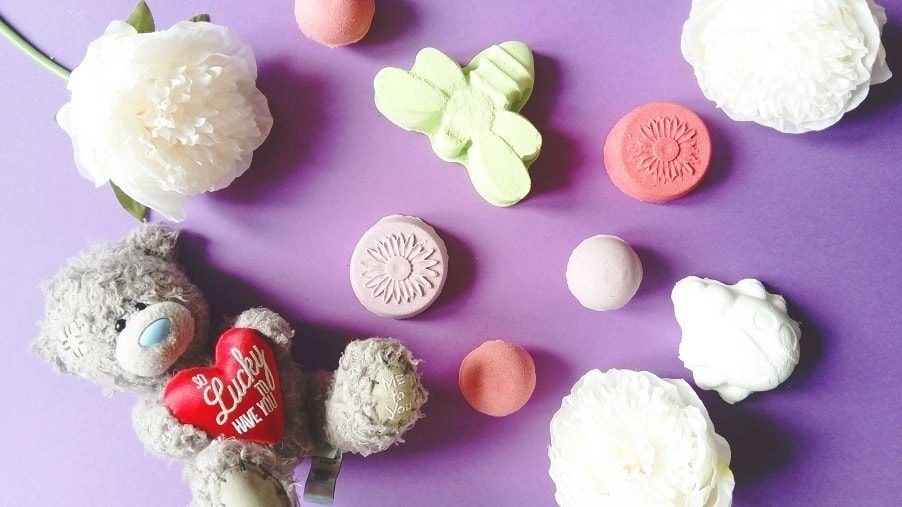
Over the last years, bath bombs have become very popular. What started as bath treat for adults is now a very popular product for kids too. It’s no surprise that kids love them. Bath bombs are fun, they fizz, spin, foam and come in a variety of different shapes and colors. So today, I will be showing you how to make an easy and safe bath bomb that your kids can enjoy.
Are bath bombs safe for kids?
When it comes to bath bombs for kids, safety is a priority. Although bath bombs, in general, are considered safe, some of them do contain ingredients that can irritate child’s sensitive skin.
For example, commercial bath bombs often contain SLS which is a foaming ingredient that can be quite drying. They also often contain a high quantity of fragrance that can irritate young skin.
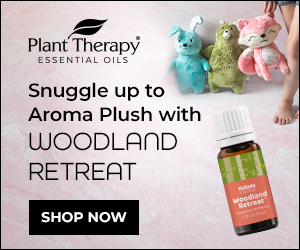
Even fully natural bath bombs may not be suitable for small kids, especially toddlers. Why? Because most bath bombs are simply made too strong. For example, many contain essential oils in quantities that are way too high for children.
While finding a commercial bath bomb that is safe for kids can be difficult, making one yourself is actually very easy and cheap. All you need to know is how to tweak bath bomb ingredients to make them safe for the little ones.
To guide you, I have created an easy bath bomb recipe for kids. This recipe is simple and quite minimalistic. In my opinion, it is suitable even for really small kids. However, always consult with your pediatrician.
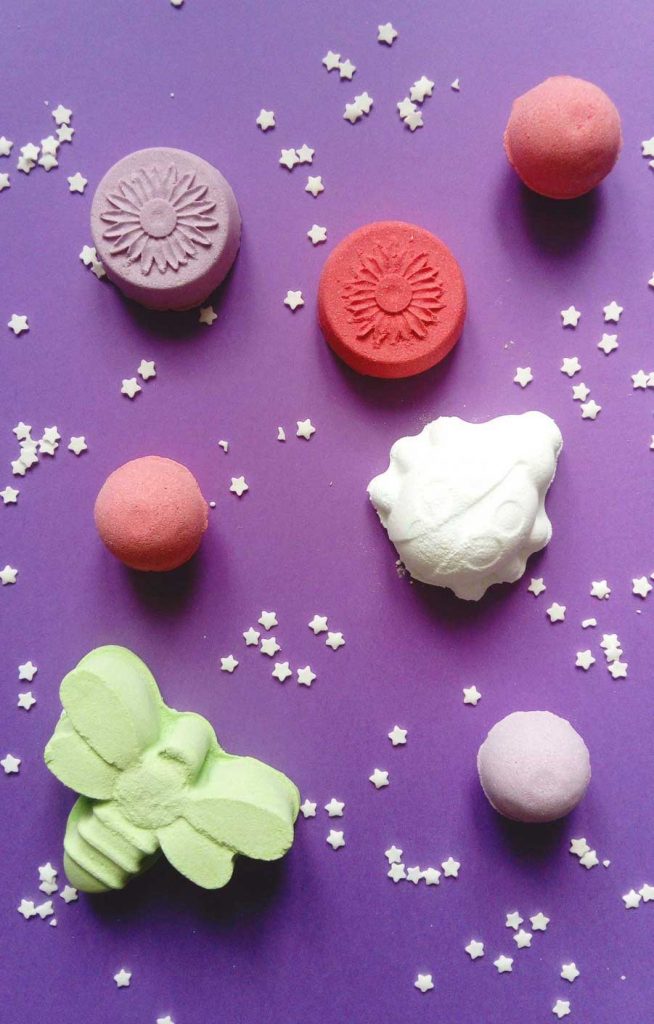
The ingredients to make bath bomb for kids
+ 1 cup of baking soda. This is the main ingredient in any bath bomb.+ 1/3 cup of citric acid. Citric acid is considered to be a safe ingredient. It is often added to juice, candy, and sauces that are consumed by children. The fact that it is part of children’s food should put you at ease about its safety.
Standard bath bomb recipes ask for 1/2 cup of citric acid, but for children’s bath bombs I only use 1/3 of the cup. I do this for 2 reasons.
First, it makes the bath bombs more gentle.
Second, it slows down the fizzing action. My niece got scared of the bath bomb the first time she saw it because it was fizzing too much. Adding just 1/3 cup of citric acid will make bath bombs fun but not intimidating. She loves them now!
+ 3 tbsp of cornstarch. This will make bath bombs harder and bath water will feel softer.
+ 1 tbsp melted coconut oil. This will make the bath water feel soft and leave child's skin soft and moisturized. Feel free to substitute with other oils. However, I would avoid sweet almond oil due to possible nut allergies.
+ water-soluble soap dye or natural food coloring. Coloring your bath bombs is, of course, completely optional but kids do enjoy colors the most.
+ Essential oils. For this recipe, I chose classic Lavender essential oil. It’s gentle, smells good on its own and helps to relax. Feel free to choose a different essential oil and even mix a couple together.
For older kids, you can use pretty much any essential oil. However, for the little ones I have a couple of suggestions.
The most gentle essential oils are:
Lavender essential oil is my favorite for bath bombs for kids. It relaxes children and helps them sleep better. It is perfect for bedtime baths.
Strong essential oils to avoid in bath bombs for kids:
* Eucalyptus
* Rosemary
* Thieves
How to use essential oils with kids
There is one simple but important rule to remember when using essential oils.
[You always need to dilute your essential oils before using them]
This applies to all essential oils and all brands. To dilute essential oils you need to mix it with a carrier oil (such as coconut oil or grapeseed oil). This step is included in the bath bomb making tutorial below.
The amount of essential oils used in bath bombs for kids depends on the child's age and the size of the bathtub.
Is it for a 1-year old or a 6-year old?
Will it be used in a standard bathtub or a small baby pool?
These questions will help to determine the safe amount of essential oils that you can use.
I have created an infographic with guidelines showing safe quantities of essential oils for kids (below). It should help you determine the amount of essentials oils to use. As I mentioned before, dilution is very important when working with essential oils. So, I provided the recommended amounts per tablespoon of carrier oil.
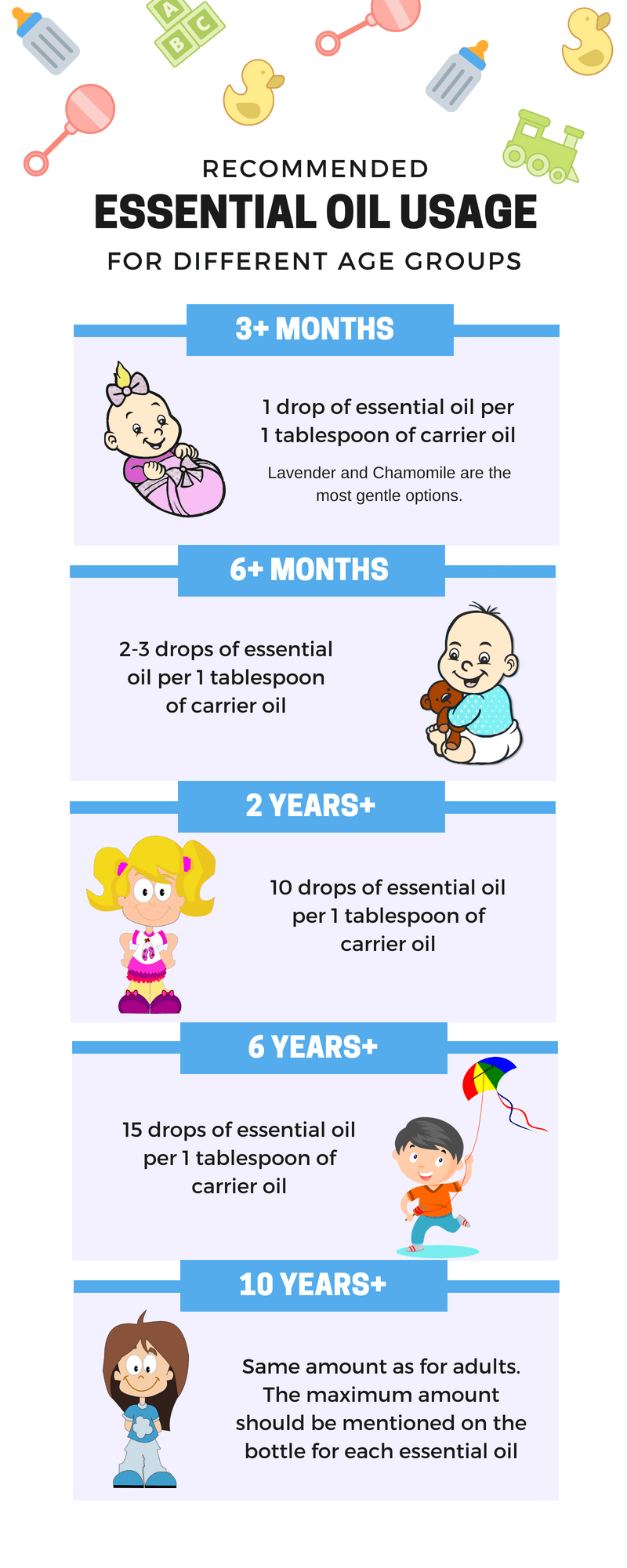
I have not provided the exact amounts of essential oils that you should add to the kids bath bomb recipe because this will highly depend on:
- age of the child;
- the size of bath bombs;
- size of the bathtub.
So, when adding essential oils to the bath bomb recipe you need to use your own judgment. I hope the table above will make it easier.
Also, Dr. Axe has quite a good article about essential oils. It's a good read if you want to know more about the benefits of various essential oils.
+ Bath bomb molds. There are many beautiful bath bomb molds that you can buy online. Or, you can use something that you already have at home, for example, a cupcake baking tray.
To make bath bombs for toddlers, choose small bath bomb molds. The small round bath bomb molds in the picture are a great option. They are big enough to color the water.
For bigger kids, choose bigger molds. Bigger bath bombs will produce more fizz and more colors. Children like interesting shapes - cars, flowers, bugs and etc. I used silicone molds for baking. My only tip for purchasing molds for bath bombs is to avoid designs that have a lot of small details. Bath bomb molds with simple designs are the easiest to work with.
You can find some nice molds for kids bath bombs here: Easy flower mold Butterfly & insects mold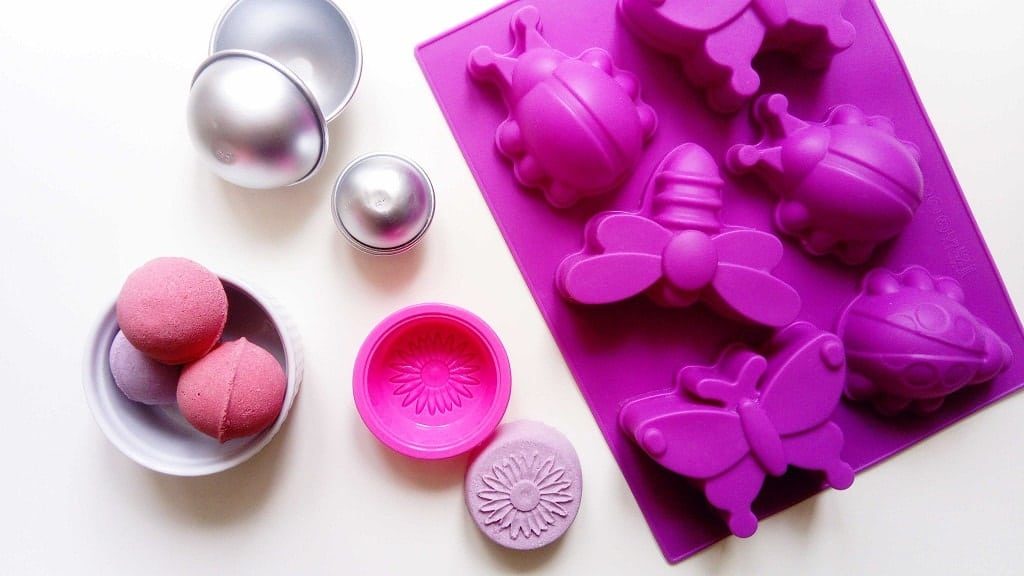
+ Extras. The ingredients above are sufficient to make beautiful and kids friendly bath bombs. But if you want to go a step further consider adding these extras:
- ¼ cup colloidal oatmeal. It is a gentle ingredient and helps to soothe itchy skin. You do not need to change anything in the recipe to add extras.
- ¼ Epsom salts. Many bath bomb recipes online call for Epsom salts. It is a nice additive but it may make the bath bomb mix more difficult to work with. Also, some children might be allergic to it.
How to make bath bombs for kids step by step
1. Combine baking soda and cornstarch in a large bowl and mix.
2. Add couple drops of water-soluble soap dye, spray some warm water on top and mix very well. Warm water will help the color mix better. Keep mixing until the colors are even. Keep adding more drops of color until you reach the desired shade.
3. In a separate bowl, mix melted coconut oil and essential oils. This is the part were we dilute the essential oils in the carrier oil.
4. Pour the oil mixture into the large bowl and mix. You can use a whisk or your own hands to mix (use gloves). Your mix needs to be slightly moist but not wet. If it's wet and heavy, leave it to dry for a bit.
5. Add citric acid and mix well. Your final mixture should resemble damp sand. Squeeze the mixture in your palm. If it stays together – then your mixture is ready. If not, spray a little bit of water and mix again.
6. Pack your bath bomb molds. Add a little bit at a time and press with your fingers firmly. Molds need to be tightly packed.
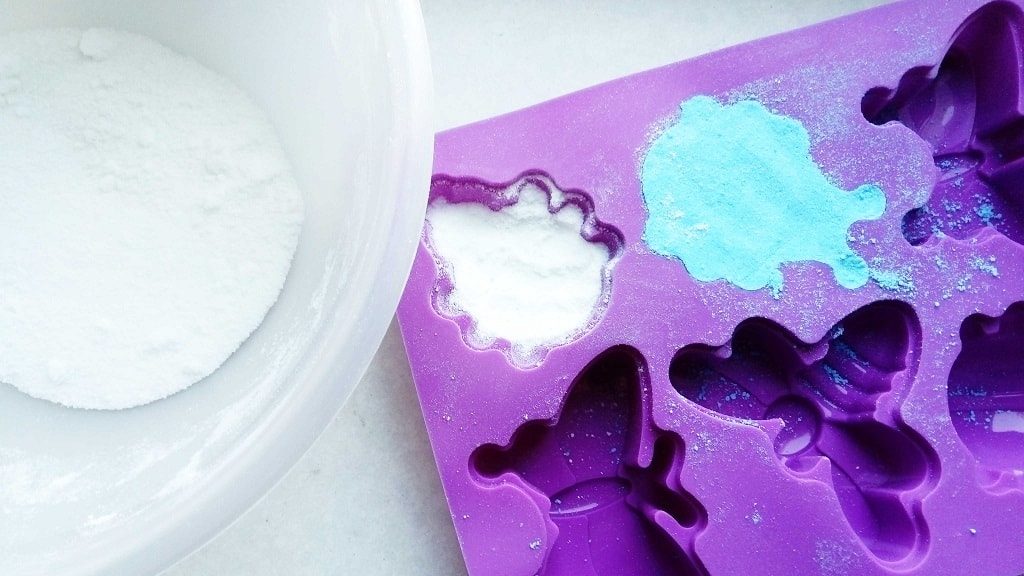
7. Let the mixture sit in the bath bomb mold for a couple minutes and then remove. Leave it to dry for 24 hours. Store in an airtight dry container.
As you see, this kid-friendly bath bomb recipe is easy to make. You could even make bath bombs together with your kids. Let me know if you tried making this recipe and what you think.
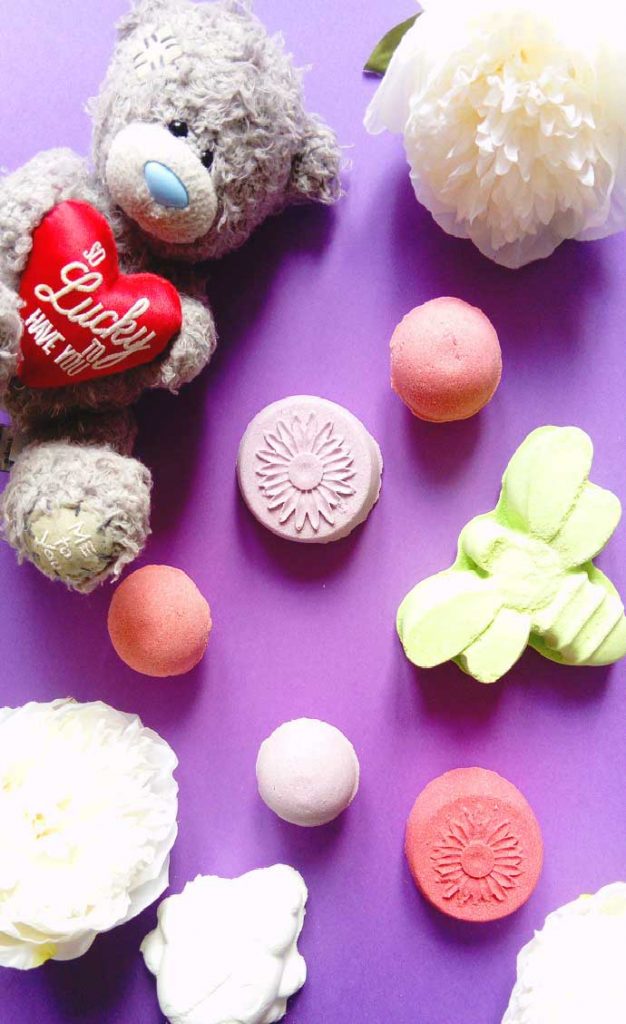

How much cornflour do you need for this recipe?
Hello Darlene,
Great question! 3 tbsp of cornstarch per 1 cup of baking soda works best for me. Updated the post to show that. Thanks!
These look like a great alternative to store bought bath bombs. Do you have to use the essential oils in it?
Hi Brenda! No, essential oils are completely optional.
Darlene…the kids’ recipe looks fantastic. Is there anything I can add/substitute to achieve a “bubbling” bomb? I don’t like bubble baths for children so I don’t keep bubble bath on my shelf. Would Dr. Bronner’s Castile soap be effective and, if so, how much should I add?
Thank you.
Hi,
How many bath bombs this recipe can make? It depends from mould but on average if take standard ball size?
Thank you
Hi. May I ask, what other essential oils is good for bath bombs?
If you use water solvable soap dye without polysorbate will the colour not stick to children and bath tub ?
Is there ever a problem with the coloring adhering to skin, washcloth or tub?
Red Turkey oil is the only oil that will totally dissolve in any water with polysorbate 80.
Sorry with out polysorbate 80. typo. my bad.
Hi, I tried to make these with my students. Unfortunately when I tried to take them out of the mold they crumpled. Help me! What did I do wrong?
I am in the process of making these as well and they rose in the molds. I tried getting them out and they are not holding their shape. So I pushed the mixture back in and am going to let them dry longer in the mold and see what happens..🤞🏻🤞🏻
We want to use Mica powder for the coloring with polysorbate 80 is it gonna be safe for toddlers?
Help! I made these and for some reason the bombs keep poofing! What did I do wrong? 😩
Hi, just wondering if you used powdered or liquid citric acid? Thanks!
No, Christine, liquid (or any) castile soap would not be effective to make a foaming product — except weakly if the water’s completely “soft”. But whatever reason you dislike bubble baths for children would go equally or more so if the bubbles are made using soap, so why go there? Commercial bubble baths give a better ratio of foam on the water to skin irritancy than real soap would. Real soap would make a bath sudsy only by making it as grease-cutting as dish or laundry water.